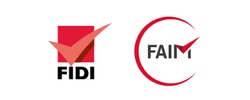With an unprecedented situation gaping at us, the immigration and visa norms across the world have become stringent. But slowly things will again become normal and people will relocate to new places.
As one of the reputed overseas international relocation companies, Writer Relocations will partner you in your entire move journey. Even after you go and reach the new country, and your goods get delivered, we help you settle down and make it home in there, as a part of our destination services. From looking for the best possible schools for your children to looking for suitable job opportunities for your spouse, we also help you understand the cultural nuances and get a hang of the local language. Everything comes under our bouquet of offerings as a destination service provider.
Here we give you a list of countries that offer the best working conditions, because after all, we all relocate to give a new essence to our lives.
France – the country to be in for those who seek a great work/life balance
France is not only a country, which is known for its art, culture and heritage, it also offers a wide range of benefits for those who relocate to the country for work purposes. Most companies there offer increased holiday and sick pay as standard. Employment legislation is pretty stringent in that country, which is why workers in France make the most from clear expectations and benefits.
You will be surprised at the amount of time you will be getting for yourself when you work in France. Every worker or employee in France receives 5 weeks of annual leave as standard, which is not the scenario in most other countries of the world. So, employees get more time for themselves and their preoccupations like pursuing a course or hobby, holidaying, visiting friends, and visiting one’s own country. The work/life balance is also boosted by an average workweek of roughly 35 hours per week. In case an employee puts in extra hours, that is always fairly compensated.
The career prospects are also very bright for the women workforce in France. This is why the second-largest rate of female workers in Europe is in France. There are also legislative plans to finally do away with the 15% gender pay gap in the country.
Switzerland – the country to be in for those expats who are looking for good pay packages
Many expats want to be in Switzerland because of the lucrative salaries that the country offers, compared with the other countries of Europe. Workers or employees earn at an average of about 20 francs per hour in this country. However, there is no legal minimum salary in this land. And the high wages many times may be offset by the increased living costs of the country.
In Switzerland, the average working hours per week is 41 hours and 10 minutes and it can stretch to a maximum of 45 hours, as per the legal standards. However, if certain jobs require up to 50 hours of work, it can be supplemented by statutory holidays of 20 days for all employees, in addition to all national holidays.
United Kingdom – for those expats who seek to climb the career-ladder fast
The United Kingdom is currently ranked as the fourth country in the world, in terms of career growth and it’s the perfect place to be in for those aspiring for a well-paid senior role. This is why many graduates flock to the United Kingdom after their university education.
So, make your plans and dream on for a destination you would want to travel to. For all moving and destination services assistance, do partner with Writer Relocations.






















